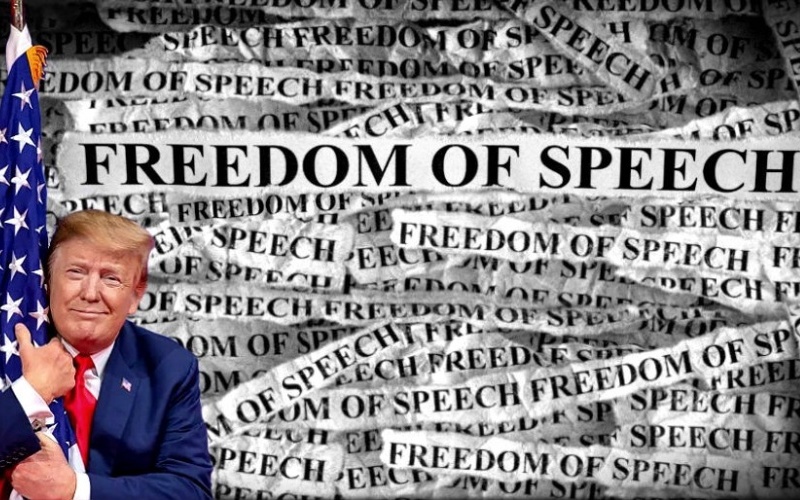I spoke with the BBC World Service on Tuesday about how we maintain a “free speech” for dialogue and decency, amid tensions in the US and the provocations of Donald Trump.
In the context of Twitter’s initial flagging of Trump tweets for disinformation and incitement of violence, we discuss a responsible freedom of speech in legal and political contexts. We contrast that with the myth of an “absolute freedom of speech”, used by Trump supporters to give cover to his disinformation, falsehoods, and threats.
The other panelist is one of those supporters, hard-right polemicist Mark Steyn.
1. Freedom of speech is not absolute. Freedom of speech has responsibility: you cannot libel, you cannot incite violence, you cannot pursue hate speech, you cannot put out disinformation which has consequences.
2. In the past week, Donald Trump has not only tweeted that postal voting is fraudulent, which is disinformation. He has also effectively said that a broadcaster is a murderer, and in his most recent tweets, he has incited violence against protesters currently on US streets.
3. Simply claiming an ‘absolute freedom of speech’, as Trump supporters do, is not the legal position set by the Supreme Court for more than a century. It is an attempt to ensure Trump has no restrictions, whatever the consequences.


https://twitter.com/Danpark74894180/status/1267793412046180352
Is this hate speech? I’m asking because my stance on the question of its legality might depend on the answer.